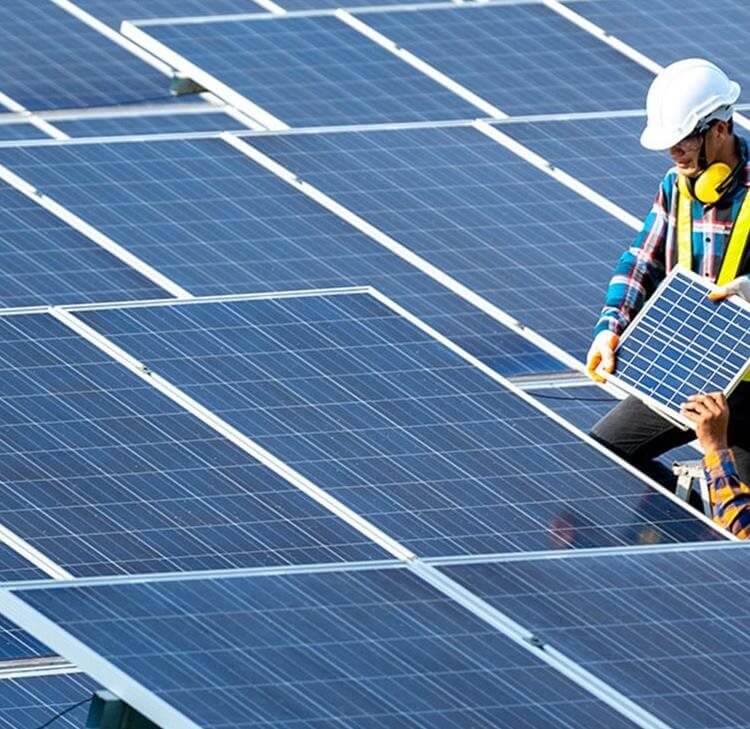Construction and the environment: building green contracts to meet your carbon-neutral commitments
With increasing concerns surrounding a climate crisis and the need for greater environmental sustainability, several councils across the UK recently expressed a firm commitment to become carbon neutral.
This article is taken from January's public matters newsletter. Click here to view more articles from this issue.
With increasing concerns surrounding a climate crisis and the need for greater environmental sustainability, several councils across the UK recently expressed a firm commitment to become carbon neutral. Even those that have not are under greater scrutiny than ever to think practically and strategically about how they can minimise the impact of their activities.
Many public bodies have set environmental targets which must be met, such as a requirement to reduce greenhouse gas emissions by a certain level within a designated time frame. These targets are particularly relevant when it comes to procuring construction works.
On each construction project, there are both short and longer-term issues regarding the environment. On a day-to-day basis, focus should be on issues such as minimising noise and air pollution, the efficiency of the equipment and machinery used, how frequently it is used and the nature of the materials used. In the longer-term, the amount of energy which the building uses and how long it will last are vital considerations which could have a major and lasting impact on the environment.
Procurement of building works
One strategy each public body should consider is improving the environmental impact of the contractors and other service providers it engages. This should be reflected in the way construction works are procured and the content of the construction contracts. Any requirements relating to environmental sustainability and achieving the public bodies’ targets should be:
- clearly highlighted during the procurement process;
- properly incorporated into the construction contract and any other relevant supporting documentation; and
- ‘flowed down’ through the supply chain to the main contractor and its sub-contractors.
This is so that all parties are fully aware of their obligations at the outset and required to adhere to them.
Public bodies can also, under certain circumstances, award contracts at the outset based on various environmental criteria under section 68(3)(a) of The Public Contracts Regulations 2015. Positive action in this area would help to send a message to suppliers that public bodies are taking climate change and associated issues very seriously.
Including green provisions in your building contracts
But how can public bodies actually go about making their contracts more eco-friendly on a practical level? This depends on the type of contract which is used on the construction project.
On a more practical level, public bodies should ensure that their contracts specify how, and how often, any relevant environmental targets will be measured. There should be a clear mechanism under the contract by which suppliers will be required to report to the public body so that performance can be accurately and regularly assessed. It is good practice to provide for an independent third party to corroborate the data submitted by the supplier to the public body and, if necessary, allow for the public body to access this data so that it can interpret and check it itself, particularly in the event of a dispute.
Joint Contracts Tribunal (JCT)
With JCT contracts, KPIs and incentives that entitle the contractor to additional payments on the basis of their environmental performance and the performance of the works themselves could be incorporated in the contract via a Schedule of Amendments.
Most forms of JCT Contracts also include a ‘sustainable development and environmental considerations’ supplemental provision that the parties are able to select as being applicable to the contract. This encourages the contractor to suggest amendments to the works which will improve environmental performance.
New Engineering Contract (NEC)
Most forms of NEC contracts have built in KPIs, and selecting Option X20 allows for the incentivisation of KPIs, which could include BREEAM ratings, requirements to use renewable energy and energy-saving products and obligations on contractors to adhere to the public body’s relevant environmental policies.
The carrot and the stick
As well as offering incentives as suggested above, provisions could be included in both forms of contract that seek to penalise contractors who fail to fulfil their obligations, ranging from deductions from the contract sum to termination in circumstances where breaches are persistent and serious.
If you have any queries on the issues raised in this article, please contact a member of the Construction Team.









































